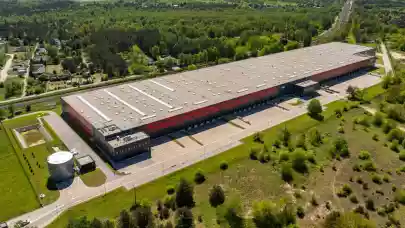
As many as 60% of office workers want a hybrid model of work, with 55% having previously worked in this manner. The pandemic has introduced revolutionary changes in the way we work, forcing companies to rapidly adapt to this shift in working patterns. After more than two years, the time has come to reflect and develop a working model that both supports an organisation’s business goals and responds to employees’ expectations.
Before the COVID-19 pandemic, being able to work remotely was seen as a privilege. More recently, it has become a necessity. More than two years after the introduction of the first lockdown, many companies are facing the challenge of developing an effective working model that fits into their business culture and is attractive to employees. JLL experts, in cooperation with ASPIRE – an organisation representing IT companies and business service centres, invited executives from companies in the sector to discuss this topic.
The important voice of the employee
Only one in two employees consider their company to be a good place to work. Therefore, post-pandemic, it is more important than ever to build an organisational culture around an employee-friendly atmosphere and to invite employees to jointly develop a hybrid working model. Employees' sense of influence and involvement in defining new ways of working is crucial to the integration process, especially in challenging times. Furthermore, inviting them into an open debate provides an attractive space for redefining the values supported by companies and their employees.
“The introduction of hybrid working as the ‘new normal’ is a milestone in establishing together a way of working in which flexibility plays first fiddle. This formula has many benefits for both parties – companies and employees alike. There is certainly no going back to the way things were before the pandemic – we can all see how many benefits remote working brings. On the other hand, it comes with numerous challenges. Hence, the idea of mixed working seems to be the most attractive solution. Importantly, however, there is no one-size-fits-all solution that works for everyone. Moreover, the development of a hybrid working formula requires companies to take into account many aspects that will translate into the successful implementation of this particular model. Because of the currently challenging labour market for employers, this is not as obvious as it might seem, especially in such competitive industries as IT and business services. That is why, together with professionals and practitioners, we have combined industry experience with the global findings of the JLL “Workforce Preferences Barometer” survey in order to take a more comprehensive look at hybrid working,” emphasises Dorota Gruchała, Director of the JLL offices in Kraków and Katowice.
A growing role for leaders
More than half (59%) of employees expect the company to support their health and well-being. It is the second most cited priority, just after the quality of life and work-life balance, and its importance is increasing year by year. Well-being is seen as more important than the amount of remuneration or a sense of meaning from one's work. From this perspective, even more, important is the role of leaders, whose competencies are more relevant for hybrid work. Building a bond with the team and being a partner who knows and understands each person well so that they can respond to individual needs, is becoming as important as supporting and mentoring in the professional environment. Leaders have a direct impact on the integration of employees and can give more meaning to their activities by building community, which is one of the major post-pandemic challenges.
Open to dialogue
The hybrid working model poses a number of challenges for organisations, not only related to soft areas such as taking care of team integration, fostering engagement and interaction between employees. As JLL’s 'Workforce Preferences Barometer' survey shows, 6 out of 10 people expect their company to provide technological solutions to facilitate remote working and to subsidise the expenses that result from this particular mode. Good communication with leaders and other team members becomes even more important. In addition to the ease of use and accessibility of apps, and the necessary equipment, leaders should ensure regular meetings and provide opportunities for casual, non-work-related conversations that facilitate team integration. On the other hand, the office space also needs to respond to changing needs and allow efficient communication with those who are working remotely at the time. A well-designed office will support a variety of activities. Showing users how they can effectively use the space will also be key.
“We know from the global survey that flexibility is very important for employees. Among the groups that value it particularly highly are managers (75%), representatives of Generation Z (73%) and Generation Y (69%), as well as those with relatives to care for (66%). The pandemic has meant that we have become accustomed us to working remotely, and for many this is a more attractive working model. Therefore, for even a partial return to the office to be positively received by employees, it must not be imposed top-down. Employees need to see the greater sense and benefits of working at a company's headquarters,” emphasises Wojciech Krupa, Workplace & Change Management Director, JLL.



